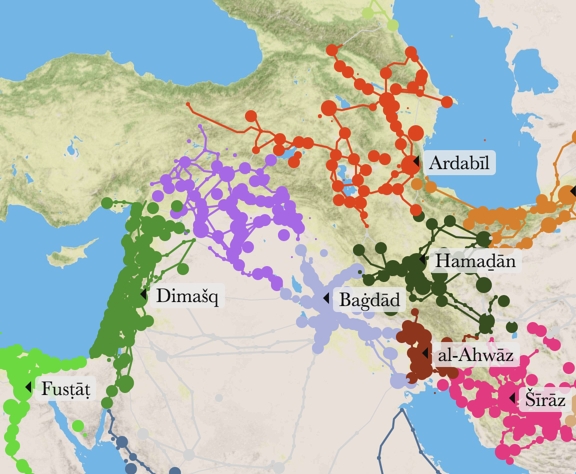Conference Program (PDF) See Videos Linked Below
Unarmed Aerial Systems (UAS), Unmanned Aerial Vehicles (UAVs), or simply “Drones”, represent a new type of remote sensing platform which is inexpensive, easy to use, and provides users with many new options regarding where, when, and how geospatial imagery and data is collected. As the technology proliferates, it is revolutionizing both spatial data collection and geographic analysis. This paradigm shift brings new perspectives to a wide range of application fields, and calls for new skills, best practices, regulations, policies, ethics, and more.
This conference aims at illuminating the profound changes drones have brought to mapping practice, from platform and sensor selection, flight path planning, field operations, data processing, image analysis, feature extraction, 3-D model construction, and visualization. Experts will share their experiences with application cases and first-hand operational logistics.
The event will start with a half-day hands-on demo and training workshop Thursday afternoon, followed by a full day of plenary sessions on Friday, which will include a keynote address, presentation sessions, panel discussions, and closing remarks. Invited speakers will engage with the audience in discussions on the current status, achievements, lessons learned, unmet needs, challenges, potentials, and perspectives of drones in spatial data collection and analysis, particularly as it relates to academic research and learning.
The event is free and open to the public. Please register using the button above.
Rooms: Belfer Case Study Room (Thursday, April 27) and Tsai Auditorium (Friday, April 28)
Location: CGIS South Building, 1730 Cambridge St., Cambridge, MA 02138
SPONSORS Include:


—-
Conference Videos:
Day 1 April 27, 2017

Welcome & Orientation - Jason Ur VIDEO

Drone imagery in ArcGIS (Esri) - Cody Benkelman VIDEO

OpenDroneMap - Free and Open Source Toolkit for Creating Aerial Orthomosaics (MIT Urban Risk Lab) - Tomas Holderness VIDEO

Drone applications at the Harvard Humanitarian Initiative - Faine Greenwood VIDEO
Day 2 April 28, 2017

Session 1 - Ethnics and Legal Issues
Universities and the New FAA Regulations, Matthew Fox VIDEO
Eye in the Sky - Ethical Issues and Humanitarian Drones, Faine Greenwood VIDEO
Place-based relationships linking drone warfare and agricultural land cover and livelihood
dynamics in northwest Pakistan, Jamon Van Den Hoek VIDEO
Drones and Federal Preemption: Who Controls the Airspace over Your Backyard, Kevin Pomfret VIDEO
Implementing UAS for Scientific Research in the Department of the Interior, Jeff Sloan VIDEO
Ethics and Legal Issues: Panel Discussion VIDEO

Session 2 - Hardware: Platforms and Sensors
Low Cost Drones and Archaeology: Evolving Method, Austin (Chad) Hill. VIDEO
Drones for Spatial Storytelling, Ben Kriemer. VIDEO
DJI and Automating Drone Missions, Brandon Montelatto. VIDEO
Balloons and Kites in the Age of Autonomous Flight, Jeffrey Warren. VIDEO
Hardware: platforms and sensors, Panel Discussion VIDEO

Keynote Presentation
Drones for Resilience, Jarlath O’Neil-Dunne. VIDEO

Session 3 - Software: Data Processing and Analysis
Drone Air Photography and 3D Modeling in Archaeology, Luis Jaime Castillo. VIDEO
UAS Hyperspectral Data Processing and Analysis, Donna Delparte. VIDEO
Workflow and data optimization using Structure from Motion, Robert Homsher. VIDEO
The Illusion of Simplicity and the Arrival of Disappearance, Lawrie Jordan. VIDEO
Automation of aerial mapping with small drones, Walter Volkmann. VIDEO
Software: data processing and analysis, Panel Discussion. VIDEO

Session 4 - Applications Across Disciplines
Enabling Research: Data Collectoin with UAS, Daniel Sheehan and Mike Foster. VIDEO
Drone-based Sensing in Amazonia, Scot Martin. VIDEO
Drones in Marine Science, Everette Newton. VIDEO
Issues with Humanitarian Use of Drones, Nathaniel Raymond. VIDEO
Drones and Historical Landscapes, Jason Ur. VIDEO
Applications Across Disciplines, Panel Discussion. VIDEO

Closing Remarks and Awards. Faine Greenwood, Alexandra Vacroux, Jason Ur. VIDEO
no links
no file attachments





